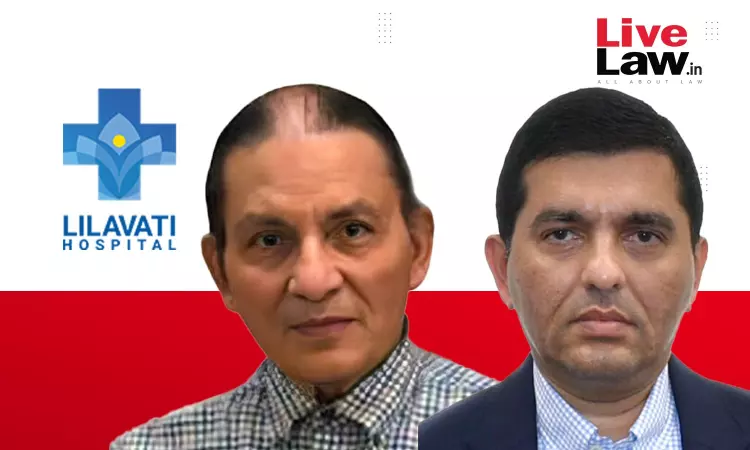Bombay High Court Issues Contempt Notices To Lilavati Hospital's Founder Trustee & Son On HDFC's Plea
Sharmeen Hakim
1 March 2024 1:03 PM IST

Next Story
1 March 2024 1:03 PM IST
The Bombay High Court has issued contempt notices against the founder trustee of Lilavati Hospital – octogenarian Kishore Mehta and his son Rajesh for alleged breach of undertakings given to the court and for allegedly failing to deposit 25% of debt amount, in proceedings filed by HDFC Bank.HDFC claimed the respondents had deposited only Rs 3.68 crore whereas they were supposed to deposit...
